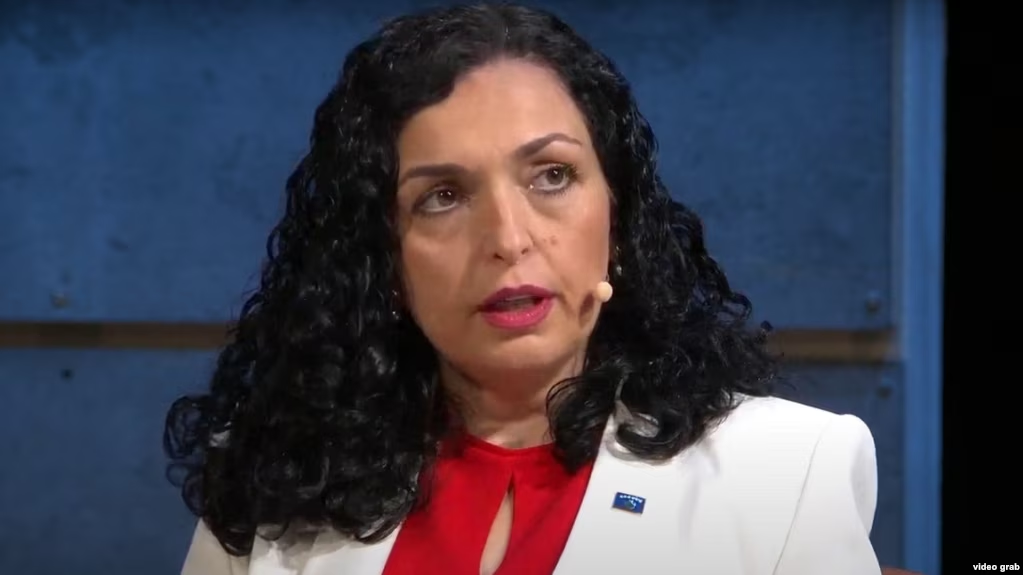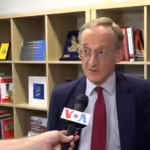The President of Kosovo, Vjosa Osmani, said on Tuesday that the uncertainties surrounding the Euro-Atlantic integration of Kosovo are creating dangerous ground to be exploited by the enemies of democracy, while she accused Serbia of trying to help the Russian President, Vladimir Putin, to advance his intentions in the Western Balkans.
President Osmani, who is participating in the Copenhagen Meeting for Democracy, said that in the current geopolitical framework it is essential that international organizations keep their doors open to democratic countries.
“The ambiguities on Kosovo’s path towards Euro-Atlantic integration create a very dangerous gap, ready to be exploited by the enemies of democracy. This uncertainty creates fertile ground for Russia and its extensions to undermine all our shared achievements. It is essential for NATO and the European Union, now more than ever, to implement an open door policy for consolidated democracies like Kosovo to ensure that no region remains vulnerable to the disruptive forces of (Vladimir) Putin,” she said.
Kosovo is the last in the European integration processes, while it is facing increased pressure from the West to establish the Association of municipalities with a Serbian majority as a condition for its membership in the Council of Europe.
“Now we are being told that you should establish the Association, but we ask whether Serbia will implement its part at the same time, which means voting for Kosovo’s membership in the Council of Europe, and no one is asking Serbia to do such a thing. Therefore, I think that this complete lack of balance is really destroying the credibility of the dialogue and is raising many questions in Kosovo, since if only one side will have to implement it, then what is the purpose of an agreement?”, she said.
Last month, Kosovo received the green light from the Parliamentary Assembly of the Council of Europe to join this mechanism. However, its inclusion in the agenda of the meeting of the Council of Ministers held on Thursday, seems to have been impossible since Kosovo refused to take steps towards the establishment of the Association.
The establishment of the Association is part of the agreement for the normalization of relations between Kosovo and Serbia that was reached last year in Brussels and Ohrid.
President Osmani said that Kosovo does not avoid its obligations, but demands that Serbia fulfill its obligations at the same time.
“While Serbia is doing the exact opposite, saying that we will never de facto or de jure recognize Kosovo, we will never allow Kosovo to join any international organization, the question is what are the guarantees that we will have, especially in terms of of security, in order not to allow this Association to get completely out of our control. Let’s look, for example, at the problems that Bosnia and Herzegovina is facing because of the Republika Srpska,” she said.
President Osmani said that the draft statute drawn up by Western diplomats, which was submitted to the parties in October of last year, does not resemble the mechanism of the Serbian Republic, but it must be ensured that it does not create problems in Kosovo.
Serbia formally seeks membership of the European Union but maintains close ties with Russia and has refused to join Western sanctions against Moscow over its aggression in Ukraine, primarily because of the Kremlin’s support for Serbian claims to Kosovo. .
The European Union has emphasized on several occasions that the implementation of last year’s agreement is a legal obligation for both parties and a condition for their progress towards European integration.







